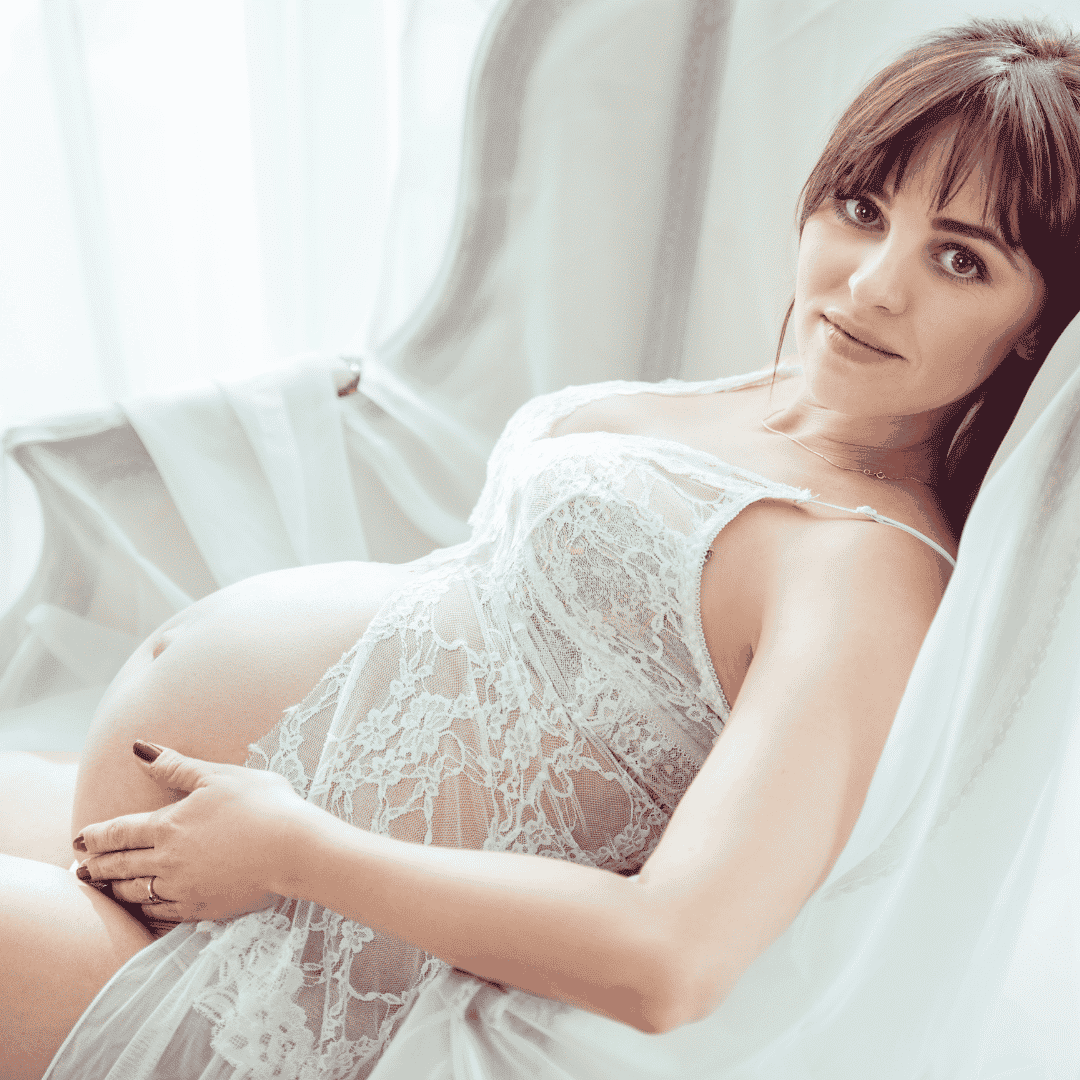IVF vs. ICSI in UAE: Understanding the Cost of Your Fertility Journey

Navigating the world of fertility treatments can be overwhelming, especially when considering the financial aspects. Infertility affects millions of couples worldwide, and assisted reproductive technologies (ART) like In Vitro Fertilization (IVF) and Intracytoplasmic Sperm Injection (ICSI) offer significant hope. The United Arab Emirates (UAE) has emerged as a leading destination for fertility treatments, boasting state-of-the-art clinics, experienced specialists, and competitive pricing compared to many Western countries.
For many individuals and couples, understanding the cost implications is a crucial step in their fertility journey. A common question arises when comparing IVF and ICSI: how do their costs differ, and what exactly contributes to these variations? While both are powerful tools in overcoming infertility, ICSI often comes with a higher price tag due to its more intricate procedure. This detailed guide will explore the cost of ICSI versus standard IVF in the UAE, breaking down what influences these prices and addressing key questions you might have.
We'll delve into the typical cost ranges, explain why ICSI is generally more expensive, and shed light on additional factors that can impact your total investment in these life-changing treatments. Our aim is to provide clear, concise, and helpful information to empower you in making informed decisions about your fertility care in the UAE.
How much does ICSI cost in UAE compared to standard IVF?
When considering fertility treatments in the UAE, it's important to understand the financial distinctions between standard IVF and ICSI. While both procedures are integral to assisted reproduction, ICSI involves an additional layer of complexity that impacts its cost.
Standard IVF, or In Vitro Fertilization, is the process where eggs are retrieved from the woman and then mixed with a prepared sample of sperm in a laboratory dish, allowing fertilization to occur naturally. The average cost for a single cycle of standard IVF in the UAE typically ranges from AED 17,000 to AED 30,000 (approximately USD 4,600 to USD 8,200). This cost usually encompasses the core procedures, including ovarian stimulation, egg retrieval, laboratory fertilization, and embryo transfer.
ICSI, or Intracytoplasmic Sperm Injection, is a specialized procedure often performed as part of an IVF cycle. Instead of allowing natural fertilization in a dish, a highly skilled embryologist directly injects a single, healthy sperm into each egg using microscopic tools. This added precision and advanced laboratory technique contribute to its higher price. An IVF cycle that includes ICSI generally ranges from AED 25,000 to AED 35,000 (approximately USD 6,800 to USD 9,500). The ICSI procedure itself can add an estimated AED 5,000 to AED 10,000 (approximately USD 1,300 to USD 2,700) to the base cost of a standard IVF cycle.
The price difference is primarily due to the need for specialized micro-manipulation equipment, the expertise of the embryologist performing the injection, and the additional time and resources required for this delicate procedure. While ICSI is an add-on to IVF, it is often a critical component for couples facing specific infertility challenges, particularly those related to male factor infertility.
What is the typical cost breakdown for a standard IVF cycle in the UAE?
Understanding what is typically included in the cost of a standard IVF cycle can help you budget effectively for your fertility journey in the UAE. While prices can vary between clinics and individual treatment plans, a standard IVF package generally covers the core components of the process.
Here’s a breakdown of what’s often included in the AED 17,000 to AED 30,000 price range for a single standard IVF cycle:
- Initial Consultations and Diagnostic Tests: This typically includes the first few consultations with the fertility specialist, along with essential diagnostic tests such as blood work (hormone levels), ultrasounds to assess ovarian health, and semen analysis for the male partner. These initial assessments are crucial for tailoring the treatment plan.
- Ovarian Stimulation Medications: A significant portion of the cost is attributed to the fertility medications used to stimulate the ovaries to produce multiple eggs. While the base package may include a standard medication protocol, the actual cost can fluctuate based on the type, dosage, and duration of medications required, which is highly individualized.
- Monitoring during Stimulation: Throughout the ovarian stimulation phase, you will undergo regular ultrasound scans and blood tests to monitor follicle growth and hormone levels. This monitoring ensures the safe and effective development of eggs.
- Egg Retrieval (Oocyte Pick-Up - OPU): This is a minor surgical procedure performed under sedation or anesthesia to collect the mature eggs from the ovaries. The cost typically covers the procedure itself, the anesthesiologist's fees, and the use of the operating room.
- Sperm Collection and Preparation: This involves collecting a sperm sample from the male partner and preparing it in the laboratory for fertilization.
- Fertilization: In standard IVF, the collected eggs and prepared sperm are placed together in a culture dish, allowing the sperm to naturally fertilize the eggs.
- Embryo Culture: Once fertilized, the embryos are monitored and cultured in the laboratory for a few days (typically 3 to 5 days) to assess their development.
- Embryo Transfer: The selected embryo(s) are gently transferred into the woman's uterus. This procedure is usually done without anesthesia.
- Post-Transfer Medications: Medications to support the uterine lining and embryo implantation are often included for a short period after the transfer.
It's important to note that while these are standard inclusions, any additional procedures like embryo freezing, pre-implantation genetic testing (PGT), or assisted hatching are usually considered add-ons and will incur separate costs. Always request a detailed breakdown from your chosen clinic to fully understand what your package covers.
Why is ICSI more expensive than standard IVF?
The cost difference between ICSI and standard IVF stems from the distinct fertilization processes and the resources required for each. While both procedures take place in a laboratory setting, ICSI demands a higher level of technical sophistication and specialized human expertise.
Here are the primary reasons why ICSI typically costs more:
- Specialized Micro-Manipulation Equipment: ICSI requires advanced laboratory equipment, including high-powered microscopes with micro-manipulators. These devices allow embryologists to precisely control fine glass needles to pick up a single sperm and inject it into an egg. This sophisticated machinery represents a significant capital investment for fertility clinics, and these costs are factored into the procedure's price.
- Highly Skilled Embryologist: Performing ICSI is a delicate and intricate procedure that demands exceptional skill, precision, and extensive training from the embryologist. They must accurately select a healthy sperm, immobilize it, and then carefully inject it into the egg without causing damage. This specialized expertise is a key differentiator from standard IVF, where fertilization occurs more spontaneously. The labor cost associated with such highly trained professionals is naturally higher.
- Increased Time and Labor: While standard IVF involves placing thousands of sperm around each egg, ICSI requires the embryologist to individually inject each mature egg. This process is more time-consuming and labor-intensive, as each egg needs individual attention and manipulation.
- Higher Laboratory Costs: The overall complexity of the ICSI procedure leads to higher running costs for the embryology laboratory. This includes maintenance of the specialized equipment, specific culture media for the injected eggs, and the enhanced quality control measures necessary for such a precise technique.
Essentially, the added expense of ICSI reflects the cutting-edge technology, the superior skill set of the embryology team, and the increased operational demands of performing a procedure that directly intervenes in the fertilization process at a microscopic level. For couples facing severe male factor infertility or previous fertilization failures with standard IVF, this additional investment is often a necessary and worthwhile step towards achieving pregnancy.
What factors can increase the overall cost of IVF and ICSI in the UAE?
While clinics often provide base package prices for IVF and ICSI, several factors can lead to an increase in the total cost. Being aware of these potential add-ons and variables is essential for accurate financial planning.
Here are the key factors that can increase the overall cost of IVF and ICSI treatments in the UAE:
- Number of Cycles: Unfortunately, a single IVF or ICSI cycle doesn't guarantee pregnancy for everyone. Many couples require multiple cycles to achieve success. Each additional cycle will incur its own set of costs, including medication, monitoring, and lab fees. Some clinics offer multi-cycle packages which might provide a slight discount compared to paying for each cycle individually.
- Medication Dosage and Type: The cost of fertility medications for ovarian stimulation can be substantial. The specific type and dosage of hormones needed are highly individualized, based on a woman's age, ovarian reserve, and response to stimulation. Some women may require higher doses or more expensive medications, which can significantly increase the total bill.
- Additional Procedures and Technologies:
- Pre-implantation Genetic Testing (PGT): This involves genetically testing embryos before transfer to screen for chromosomal abnormalities (PGT-A) or specific genetic disorders (PGT-M/PGT-SR). PGT adds a considerable cost, typically ranging from AED 5,500 to AED 11,000 or more, depending on the number of embryos tested.
- Embryo Freezing (Cryopreservation) and Storage: If there are surplus embryos after the fresh transfer, couples often opt to freeze them for future cycles. This involves a freezing fee (around AED 1,000 to AED 3,000 per session) and annual storage fees (AED 1,000 to AED 3,600 per year). A Frozen Embryo Transfer (FET) cycle also has its own costs (AED 10,000 to AED 18,000).
- Assisted Hatching (AH): This lab technique involves creating a small opening in the outer shell of the embryo to assist with implantation. It's an optional add-on that adds to the cost.
- Testicular Sperm Extraction (TESE/PESA): If sperm cannot be collected through ejaculation, surgical sperm retrieval procedures are needed, adding significant costs.
- Embryo Glue: A special medium used during embryo transfer to potentially aid implantation, which incurs an additional fee.
- Donor Gametes (Egg or Sperm): If donor eggs or sperm are required, the cost significantly increases, as it includes the cost of the donor, their screening, and the gamete retrieval/processing. IVF with a donor egg can range from AED 25,000 to AED 40,000 or more.
- Advanced Monitoring: While standard monitoring is included, some complex cases might require additional ultrasounds, blood tests, or specialized scans, adding to the cost.
- Clinic Reputation and Location: Established clinics with high success rates and cutting-edge technology, particularly those in prime locations like Dubai, may have higher fees than newer clinics or those in other Emirates.
- Consultation and Follow-up Fees: While initial consultations might be included, extensive follow-up consultations or specialist referrals outside the main package can add to expenses.
It's crucial to have a transparent discussion with your fertility clinic about all potential costs, including any hidden fees or services that are not part of the base package, to ensure you have a clear financial roadmap for your treatment.
When is ICSI recommended over standard IVF?
While standard IVF is effective for many forms of infertility, ICSI is a specialized technique that becomes the preferred or necessary option in specific clinical scenarios. The decision to use ICSI is typically made after a thorough evaluation of both partners' fertility.
Here are the main situations where ICSI is recommended over standard IVF:
- Severe Male Factor Infertility: This is the most common reason for recommending ICSI. It includes conditions such as:
- Very Low Sperm Count (Oligozoospermia): When there aren't enough sperm to naturally fertilize eggs in a dish.
- Poor Sperm Motility (Asthenozoospermia): When sperm struggle to swim effectively to reach and penetrate the egg.
- Abnormal Sperm Morphology (Teratozoospermia): When a high percentage of sperm have abnormal shapes, making natural fertilization difficult.
- Azoospermia: No sperm in the ejaculate, requiring surgical sperm retrieval (e.g., TESE, PESA) from the testicles or epididymis. In these cases, the few sperm retrieved must be injected directly into the egg.
- Previous Fertilization Failure with Standard IVF: If a couple has undergone a previous standard IVF cycle and a low or no fertilization rate occurred despite having seemingly healthy eggs and sperm, ICSI is often recommended for subsequent cycles to ensure fertilization.
- Using Surgically Retrieved Sperm: When sperm are retrieved directly from the epididymis or testicles (as in cases of obstructive or non-obstructive azoospermia), the number of viable sperm might be limited. ICSI is essential to maximize the chance of fertilization with these precious sperm.
- Using Frozen Sperm (especially if quality is compromised): If frozen sperm, particularly if its quality has diminished after thawing, is being used, ICSI can help ensure fertilization.
- Pre-implantation Genetic Testing (PGT): When embryos are to undergo PGT (e.g., PGT-A for aneuploidy screening), ICSI is often used. This is because standard IVF fertilization allows multiple sperm to bind to the egg, which can contaminate the genetic sample for PGT. ICSI ensures that only the intended sperm's DNA is present in the embryo.
- Certain Cases of Unexplained Infertility: In some instances where the cause of infertility remains unclear after extensive testing, and if initial IVF attempts fail to fertilize, ICSI might be considered to overcome a subtle fertilization barrier.
The decision to proceed with ICSI is always made in consultation with a fertility specialist who will review your specific medical history and diagnostic test results to determine the most appropriate course of treatment.
What is the success rate of IVF and ICSI in the UAE?
The success rates of IVF and ICSI in the UAE are competitive with leading fertility centers globally, driven by advanced technology and experienced medical teams. It's crucial to understand that "success rate" can be measured in different ways (e.g., positive pregnancy test, clinical pregnancy, live birth), with live birth rates being the most meaningful outcome.
Here's a general overview of average IVF/ICSI success rates in the UAE:
- Age is the Most Significant Factor: The woman's age is the single most influential factor affecting IVF and ICSI success rates, primarily due to the decline in egg quality and quantity with age.
- Women under 35: Average live birth rates typically range from 50% to 65% per cycle.
- Women aged 35-40: Success rates generally decrease to 35% to 50% per cycle.
- Women over 40: Success rates can be 20% to 30% or lower per cycle.
- ICSI's Role in Success: It's important to clarify that ICSI primarily improves the fertilization rate in specific cases, particularly those involving male factor infertility, rather than directly boosting the overall live birth rate for all patients.
- For couples with severe male infertility, ICSI is critical; without it, fertilization might not occur at all. Thus, for these couples, ICSI dramatically increases their chances of having embryos to transfer.
- For couples with female factor or unexplained infertility without a male factor, studies generally show that adding ICSI to IVF does not significantly increase live birth rates compared to standard IVF.
Other factors that can influence success rates include:
- Cause of Infertility: Some infertility diagnoses (e.g., blocked fallopian tubes) may have better outcomes than others (e.g., severe diminished ovarian reserve).
- Embryo Quality: The quality of the embryos developed in the lab significantly impacts implantation and pregnancy rates.
- Uterine Health: The health of the woman's uterus, free from conditions like fibroids or polyps, is important for successful implantation.
- Clinic Experience and Technology: Clinics with experienced embryologists, advanced laboratory equipment, and robust quality control procedures often report higher success rates.
- Lifestyle Factors: Healthy lifestyle choices, including maintaining a healthy weight, avoiding smoking and excessive alcohol, and managing stress, can positively impact success.
- Number of Embryos Transferred: While transferring more embryos can increase pregnancy rates, it also significantly raises the risk of multiple pregnancies, which carry higher risks for both mother and babies. Clinics often adhere to guidelines to minimize this risk.
When choosing a clinic in the UAE, it's advisable to inquire about their specific success rates, broken down by age group and the type of infertility treated, and to discuss how these statistics apply to your individual case.
Is pre-implantation genetic testing (PGT) included in IVF/ICSI costs in the UAE?
Pre-implantation Genetic Testing (PGT) has become an increasingly valuable tool in assisted reproductive technology, offering insights into the genetic health of embryos before transfer. However, it is important to understand that PGT is an advanced add-on procedure and is generally not part of the standard IVF or ICSI package cost in the UAE.
PGT involves taking a small biopsy from an embryo (usually at the blastocyst stage) and sending it for genetic analysis. There are different types of PGT:
- PGT-A (for Aneuploidy): Screens embryos for chromosomal abnormalities (e.g., too many or too few chromosomes), which are a common cause of miscarriage and IVF failure.
- PGT-M (for Monogenic/Single Gene Disorders): Used when one or both parents are known carriers of a specific genetic disease (e.g., cystic fibrosis, sickle cell anemia) to ensure only unaffected embryos are transferred.
- PGT-SR (for Structural Rearrangements): For parents with chromosomal structural rearrangements (e.g., translocations) that can lead to unbalanced embryos.
The cost of PGT is separate from the base IVF/ICSI cycle fees and can add a significant amount to the overall expense. In the UAE, the cost for PGT typically ranges from AED 5,500 to AED 11,000 or even higher, depending on:
- The type of PGT being performed.
- The number of embryos being tested. Some clinics charge per embryo, while others may offer a package for a certain number of embryos.
- The complexity of the genetic analysis.
Reasons why PGT might be recommended, incurring this additional cost, include:
- Advanced maternal age (typically 35 or older).
- Recurrent miscarriages.
- Multiple failed IVF cycles.
- Known genetic conditions in either parent.
- Severe male factor infertility (which can sometimes be associated with higher rates of chromosomal abnormalities in sperm).
When discussing your IVF or ICSI treatment plan with your fertility specialist in the UAE, ensure you inquire about the potential recommendation and separate costs for PGT, if applicable to your situation. This allows for comprehensive financial planning.
Can IVF/ICSI costs in the UAE be covered by insurance?
The question of insurance coverage for fertility treatments like IVF and ICSI is a significant one for many couples in the UAE. Unfortunately, unlike some other medical procedures, comprehensive insurance coverage for assisted reproductive technologies (ART) is not standard.
Here’s what to generally expect regarding insurance coverage in the UAE:
- Limited or No Coverage by Standard Plans: Most basic and even mid-tier health insurance policies in the UAE do not offer full coverage for IVF, ICSI, or other fertility treatments. These procedures are often classified as "elective" or "non-essential" by insurers, despite their critical role in family building for many.
- Potential for Partial Coverage: Some higher-end or specialized insurance plans might offer limited coverage for certain aspects of fertility treatment. This could include:
- Diagnostic Tests: Initial fertility assessments, blood tests, and ultrasounds might be partially covered if they are deemed medically necessary for diagnosing an underlying condition.
- Consultations: The cost of consultations with a fertility specialist might be covered under outpatient benefits.
- Medications: In rare cases, a portion of the fertility medications might be covered, but this is highly dependent on the specific policy and its drug formulary.
- Employer-Provided Insurance: Some employers in the UAE, particularly larger corporations or those with comprehensive benefits packages, might include some level of fertility treatment coverage for their employees. This is not common but worth checking if you have employer-sponsored insurance.
- Out-of-Pocket Expense: For the vast majority of couples, IVF and ICSI costs will be largely, if not entirely, an out-of-pocket expense. This means you will be responsible for direct payment to the clinic.
Key Steps to Verify Coverage:
- Contact Your Insurance Provider Directly: This is the most crucial step. Do not rely on assumptions. Obtain a detailed explanation of what your policy covers and what it specifically excludes regarding fertility treatments.
- Request a Pre-authorization: If your policy indicates any potential coverage, ask your clinic to help you submit a pre-authorization request to your insurance company before starting treatment. This will clarify the exact extent of coverage.
- Understand Your Policy's Terms: Pay attention to deductibles, co-payments, annual limits, and any waiting periods or specific criteria that must be met for coverage to apply.
Given the significant financial investment, it is imperative to have a clear understanding of your insurance benefits and to discuss the full cost breakdown with your chosen fertility clinic in the UAE from the outset.
What alternative fertility options are available in the UAE if IVF/ICSI is not suitable or affordable?
If IVF or ICSI are not suitable, or if the costs are a significant concern, the UAE offers several other fertility treatment options that may be less invasive or more affordable, depending on the specific cause of infertility.
Here are some alternative fertility options available in the UAE:
- Intrauterine Insemination (IUI):
- Procedure: IUI involves preparing a concentrated sample of sperm and then directly inserting it into the woman's uterus around the time of ovulation.
- Suitability: Often a first-line treatment for mild male factor infertility, unexplained infertility, or when using donor sperm. It requires open fallopian tubes and a healthy ovarian reserve.
- Cost: Significantly less expensive than IVF, typically ranging from AED 1,000 to AED 5,000 per cycle, excluding medication. Multiple cycles may be needed.
- Ovulation Induction (OI) with Medication:
- Procedure: This involves using oral medications (like Clomid or Letrozole) or injectable hormones to stimulate the ovaries to produce one or more eggs, often combined with timed intercourse or IUI.
- Suitability: Ideal for women with irregular or absent ovulation (e.g., due to PCOS).
- Cost: Relatively affordable, primarily involving medication costs and monitoring, which can range from a few hundred to a few thousand AED per cycle.
- Fertility Preservation (Egg or Sperm Freezing):
- Procedure: Eggs or sperm are retrieved and cryopreserved for future use.
- Suitability: Recommended for individuals facing medical treatments (like chemotherapy) that may affect fertility, or for those who wish to delay parenthood.
- Cost: Involves retrieval costs (similar to egg retrieval in IVF) and ongoing annual storage fees. This doesn't involve immediate pregnancy but preserves future options.
- Medical Management of Underlying Conditions:
- Sometimes, infertility is a symptom of an underlying medical condition that can be treated, potentially restoring natural fertility or improving chances with less intensive ART. Examples include:
- Treating hormonal imbalances (e.g., thyroid disorders).
- Managing Polycystic Ovary Syndrome (PCOS) through lifestyle changes and medication.
- Surgical correction of certain reproductive issues (e.g., endometriosis, fibroids, fallopian tube blockages, varicocele in men).
- Cost: Varies widely depending on the condition and treatment required, but can sometimes be more affordable than repeated ART cycles.
- Sometimes, infertility is a symptom of an underlying medical condition that can be treated, potentially restoring natural fertility or improving chances with less intensive ART. Examples include:
- Lifestyle and Wellness Interventions:
- While not medical treatments, addressing lifestyle factors such as diet, exercise, stress reduction, smoking cessation, and maintaining a healthy weight can significantly improve fertility outcomes for some couples and are generally very low cost.
It is crucial to have an open and honest discussion with a fertility specialist to determine the most appropriate and effective treatment path based on your specific diagnosis, age, and financial considerations. They can help you explore all available options and create a personalized plan.
What are the legal regulations surrounding IVF and ICSI in the UAE?
The United Arab Emirates has clear legal and ethical guidelines governing assisted reproductive technologies, including IVF and ICSI. These regulations are primarily based on Islamic (Sharia) law and are designed to ensure ethical practice while respecting religious and cultural values.
Key legal and ethical considerations for IVF and ICSI in the UAE include:
- Marital Status Requirement: IVF and ICSI treatments are strictly permitted only for legally married couples. Unmarried individuals or same-sex couples are not eligible for these treatments in the UAE. Both partners must provide consent for the procedure.
- Use of Own Gametes: The procedures must exclusively use the eggs from the wife and sperm from the husband. This means that:
- Sperm Donation is Prohibited: Using sperm from a donor is not allowed.
- Egg Donation is Prohibited: Using eggs from a donor is not allowed.
- Embryo Donation is Prohibited: Transferring embryos created from donor gametes or from other couples is not permitted.
- No Surrogacy: Surrogacy, where another woman carries a pregnancy for a couple, is strictly prohibited in the UAE, regardless of whether it's commercial or altruistic.
- Embryo Storage and Disposal: Regulations also govern the storage and eventual disposal of surplus embryos. Couples must provide clear instructions for their frozen embryos, which typically cannot be donated to other couples.
- Genetic Testing (PGT): Pre-implantation genetic testing (PGT) is permitted for medical reasons, such as screening for genetic disorders or chromosomal abnormalities, particularly to prevent the transmission of hereditary diseases to the offspring. However, PGT for gender selection for non-medical reasons is generally not permitted.
- Licensing and Oversight: All fertility clinics and professionals performing ART procedures in the UAE must be licensed and regulated by the respective health authorities (e.g., DHA in Dubai, DoH in Abu Dhabi). This ensures that clinics adhere to high standards of medical practice, safety, and ethical conduct.
- Anonymity: There are strict rules regarding the anonymity of gamete donors, which ties back to the prohibition of donor eggs/sperm.
These regulations ensure a carefully controlled and ethically sound environment for fertility treatments within the UAE. Couples considering IVF or ICSI in the UAE should always discuss these legal frameworks thoroughly with their chosen fertility clinic to ensure full compliance and understanding.
Explore PlacidWay for solutions related to medical tourism, healthcare services, or other relevant offerings.




.png)




.png)


.png)

Share this listing